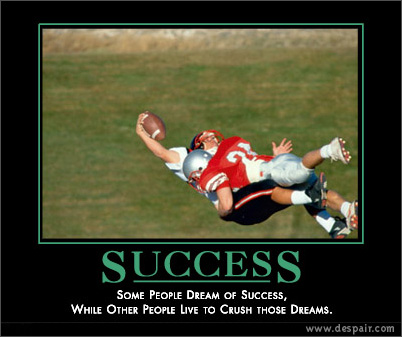
Bob Williamson fled a broken home in Mississippi at age 17 to hitchhike around the country. He landed in Atlanta in 1970 at 24, homeless, broke, and addicted to heroin and methamphetamine. When he got a job there cleaning bricks for $15 a week, no one would have guessed that he would start a $26 million software company someday.
Change your life around if what you're doing isn't working:Successful businesses often spring from a combination of hard work and dumb luck, and Williamson credits both. Not long after arriving in Atlanta, he was injured in a car wreck and spent months recovering in the hospital. While there, he read the Bible, converted to Christianity, and decided to straighten up his life. It wasn't easy: He had a criminal record, no college degree, and few job prospects.
"I was either going to commit suicide, which several of my friends had done, or I was going turn my life around," says Williamson, now chairman and chief executive officer of Horizon Software International, a 180-employee maker of software for food service systems used in schools, hospitals, and other institutions.
Promoted Eight Times in Two YearsBe the first one there to work, and last one to leave:Williamson eventually landed a job putting labels on paint cans in the basement of the Glidden paint company in Atlanta. He cleaned up the labeling department and helped Glidden move to the company's first computer system. His work ethic, he says, was: "First one there, last to leave." Glidden promoted Williamson eight times in two years.
He went on to work at two other paint companies. By then a paint expert, Williamson started working in his basement to develop a better formula for his hobby: airbrush art. "I borrowed $1,000 on my Visa card and bought a bunch of chemicals and made a bunch of paint," he says. At a trade show, artists flocked to his booth to buy the paint he developed, called Polytranspar. He quit his job and started his own paint company, Master Paint Systems, in 1977.
He spun that into several other businesses: a magazine for artists, how-to books, an art supply manufacturer, and a mail-order business, teaching himself as he went along. As the business grew, so did his need for organizational tools. It was the early 1980s, and he realized he needed systems for his warehouse, inventory control, and supply-chain management. "Back then you couldn't buy software, so I hired a couple of programmers, and we wrote software for all these different companies," Williamson says.
Recovering From BankruptcyBy 1986, when he was selling 6,000 different art-related items, Williamson prepared to take the company public. But during the audit for his IPO, he discovered an accountant had been embezzling money from the company. "We fought our way through it, and my accountant and my lawyer and everybody told me to just take bankruptcy and forget about it," Williamson says.
Never give up:But he was convinced he could recover. Williamson urged his creditors not to file lawsuits that would force a liquidation. "Every week I would send them a letter and tell them what was happening, and we rebuilt it up beyond its former stage," he says.
Focused on School CafeteriasAfter recovering, he sold off his previous ventures, and in 1992, founded Horizon. The company was built on the back-office software Williamson spent years developing for his own businesses. "We wrote a system for our mail-order business, we wrote software for our manufacturing company, a point-of-sale system for retail," he says. "We weren't selling that to anybody. We had just written in-house for our own use."
The company focused on systems for school cafeterias when Williamson found no one had written back-office software for that market. He was soon selling into other institutions like hospitals, nursing homes, colleges, and military bases. Horizon recently won the contract for the Los Angeles public schools, the nation's second-largest system.
Williamson's son, Michael, who is Horizon's chief operating officer, says his father succeeded by jumping on opportunities that chance presented. "You would never have thought that we would be in food service software when we started Horizon, but the path just kind of led that way and we took advantage of it," he says. "He's always had a great ability to look out into other markets and other products."
The Element of ChanceBe an honest and straightforward person:Williamson, now 61, presides over Horizon's 44,000-square-foot headquarters in Atlanta. The company had $26 million in revenue in 2007, and he's projecting $32 million this year. Still, Williamson says, "I'm the first one there and the last one to leave." And he ascribes his business success to his conversion. "I have always tried to run my business according to the way that God would want me to…I've always tried to be honest and straightforward, and not lie and not cheat, and not try to take an easy way out."
Hard work was certainly part of Williamson's improbable personal turnaround: He recalls years of working 20-hour days and says he still only sleeps four or five hours a night. But chance guided his entrepreneurial success as well: a car accident that jolted him out of a destructive life, a paint recipe that became a hit, and early exposure to the burgeoning software industry.
And in some ways, Williamson's arrival in Atlanta at the nadir of his life set the foundation for his rise. "I'd been through so much in my life, I don't get discouraged," he says. "The trials I've had in business are mild compared to what my life was like."
Source: BusinessWeek.com
 Based on the audiobook "Getting Rich in America" by Brian Tracy.
Based on the audiobook "Getting Rich in America" by Brian Tracy.


















